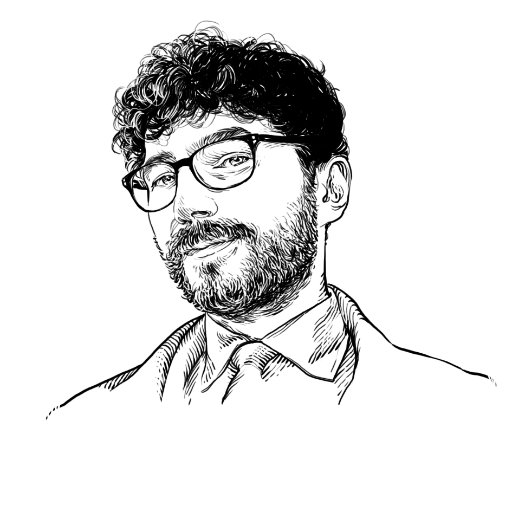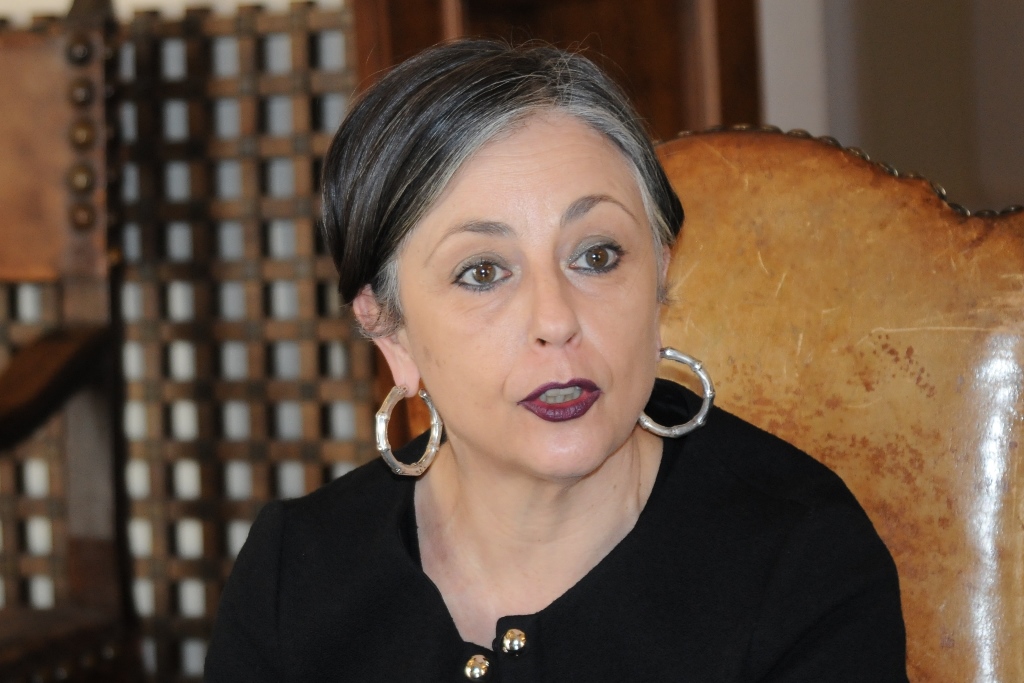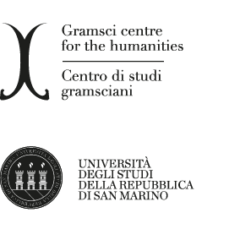To begin a discussion on the digital revolution in the humanities, we have asked some questions to our scientific advisors. Their answers will be published in eight issues between now and mid-October. Here, as third issue, those of Marco Filoni and Erminia Irace.
Index
I) Agnese Accattoli and Davide Bondì.
II) Peter Burke and Elisabetta Benigni.
V
Marco Filoni
What generation do you feel you belong to?
I always find it difficult to “fit in”: I was born in the mid-seventies, and I certainly belong to that generation that grew up between the eighties and nineties, having had the good fortune to train and collaborate with what we would have once called “old masters”, from Livio Sichirollo to Carlo Ferdinando Russo to Dino Formaggio. And in this sense my approach to the world of studies has been conveyed by a classical method. At the same time, the curiosity linked to my age made me inclined to use new technologies, often acting as a mediator between them and my teachers.
How and when did – in your personal experience – the digital revolution take place?
Since I was a university student I started to use the digital resources of the time, making extensive use of computers (for writing programs, initially, then gradually with the Internet and the emerging databases, online archives, etc.).
Is the “old” way of working still present in your life? (for example: do you write by hand? do you use paper archives that you keep tidy? do you usually go to the library to read?).
I think the “old” way of working is very much present in my activity in parallel with the digital way of working: I still use to compile notebooks, I have paper archives that I often use – and these materials are indispensable to me in my work.
What do you think about the “digital” organization of scientific and cultural work? To what extent would you define the current way of working as new?
The current digital organization of cultural and scientific work is such that I find it hard to think I can do without it. It is a fundamental part of our work: research that in the past decades would have involved long and expensive journeys, physical movements, long time spent on material research, speed in the exchange of information… today all this, thanks to technological resources, has become “simple” and fast. We have made a leap forward and we enjoy, thanks to digital, an essential ease of access today. I therefore find it very hard to imagine a scientific and cultural community that does not use (taking all the advantages) these modes.

Marco Filoni, historian of political philosophy, editorial director and essayist, combines the study of great thinkers with a lively activity of cultural journalism.
VI
Erminia Irace
What generation do you feel you belong to?
To the generation of the eighties of the twentieth century, a decade in which I was twenty years old and trained at university. Like other peers, I strongly felt that I belonged to the generation that embodied the point of arrival of the social, economic and cultural progress known to Italy and Europe in the decades following the Second World War. We had been born at the time of the economic boom, grew up in peace and democracy, had had mass access to higher education; for girls, a fully “emancipated” future was in prospect, with fruitful achievements in the professional world. We felt a close bond with the generations before us, those of parents and grandparents, and at the same time we felt we were more educated and prepared than they were. We had high expectations of our future. In short, we believed we were “la meglio gioventù”.
In retrospect, I make a completely different assessment. Mine was a transitional generation, as exemplified by the issue of the digital revolution. We have fully experienced the transition from traditional models of intellectual work to the current paradigms of the digital society.
The young people of the 1980s, judged always too young and not mature enough by the exponents of the immediately preceding generations, were then overtaken by subsequent generations, who had to introduce imperatives and modes of behavior of neoliberal capitalism, such as precariousness, the obsession with evaluation aimed at “meritocratic” selection, and globalization. Caught between these two generational cohorts, the “meglio gioventù” of the eighties did not manage to become a ruling class.
How and when – in your personal experience – did the digital revolution take place?
I wrote my dissertation using an electronic typewriter, which represented a clear progress compared to traditional typewriters. Later, I became familiar with computers in the late 1980s, particularly during my PhD. I remember these very heavy computers (even when they were portable) and equipped with computer systems that were difficult to use. As the years went by, I gradually used the subsequent technological innovations, especially the internet, e-mail, skype, smartphone, etc., but so far I have chosen not to use social media. The web, in its various aspects, has been fundamental from every point of view, both scientific-intellectual and personal. In addition, I have gained great satisfaction from the fact that I can use my smartphone to take photographs of study materials stored in archives and libraries.
Is the “old” way of working still present in your life? (for example: do you write by hand? do you use paper archives that you keep tidy? do you usually go to the library to read?).
I may write by hand to write down notes about volumes or archival papers I am reading or to put ideas on paper. However, these traditional methods are less functional for me than those made possible by the computer. In fact, being messy, I don’t always remember where I put my handwritten notes. On the contrary, the computer allows me to store materials of various types (photos, pdf, word files) in the various thematically organized folders, thus helping me in the orderly management of the materials. Consequently, my paper archive is now limited to collections of paper photocopies of texts, which I continue to do from time to time.
I usually go to the library to read, even if I have less and less time to do so over the years. I use interlibrary lending and document delivery services a lot, which also represent an important innovation.
Finally, I would like to add that, on the occasion of competitive trials over the years, which involved the writing of one or more handwritten documents, I had the strong fear that I would not be able to do it, an opinion shared by other colleagues with whom I was confronted. Now accustomed to using the cut-paste and to moving entire blocks of text, in short accustomed to all the procedures allowed by the computer, when I found myself with the pen in my hand in front of a blank page, I felt like an illiterate person, thinking I had lost the competence acquired at school related to the writing of a manuscript text with an average level of complexity. Moreover, I notice that the quality of my handwriting has deteriorated a lot with time; as I don’t practise handwriting very much, my handwriting is getting uglier and uglier, I make many spelling mistakes (I don’t make them if I write on the computer), I have become slow in writing even short texts.
What do you think about the “digital” organization of scientific-cultural work? To what extent would you define the current way of working as new?
I am enthusiastic about the digital organization of scientific-cultural work. The development of the web has opened up possibilities unthinkable for previous generations. Reading books and other texts online or in ebooks has greatly expanded the possibilities of working on international sources and bibliography as well as on materials published in past centuries and now available in digital versions (reading Marin Sanudo’s Diarii or Muratori’s Rerum on the InternetArchive at home has almost moved me). I very much welcome the current development of open access; however, I notice a considerable delay in the Italian publishing industry in adapting to the new perspectives of scientific work – I am thinking, among other things, of scientific journals, often still only printed. I would like to see a revision of the regulations governing copyright. The author should have the possibility, after a certain number of years from the publication of his monographs, volume or journal contributions, to regain full rights to his intellectual works, thus making them available on the web.
I am aware that the digital revolution has increased the amount of material available and often causes disorientation, similarly, in some ways, to what occurred in the early modern age, following the development of mobile printing. However, I remember well what happened “before”. In the period between the Sixties and the Eighties of the 20th century, the production of scientific texts – I am talking about the humanities – increased greatly and scientific work also involved finding a large amount of bibliography, dispersed in various cities and libraries. Perhaps there was perhaps less counting than the research published in Australia, but the feeling of following a huge bibliographic panorama was the same and without the undoubted convenience allowed by the Internet.
As far as the current modalities of intellectual work are concerned, they are characterized, in my opinion, first of all by an element, that is to say the acceleration of the time of realization. The current organization of scientific-intellectual work and the institutions that innervate it (for example the Anvur) press for the scholar to publish as much and quickly. The period in which you could devote five years entirely to the elaboration of a monograph appears to be over, the months in which you could only devote yourself to study, even reading works that are distant in terms of content from your research topics, are over.
On the basis of computer and digital possibilities, the system pushes to productivity, restricting the time of research, study, reflection, writing. From this arises, for example, the hypertrophy of the scientific offer on the publishing market, as well as the frequent tendency to “break up” a research by publishing different parts of it in different publishing sites (the so-called salami slicing).
All this ends up having consequences on the concrete practices of scientific-intellectual work. For example, there is a tendency to publish more articles and fewer monographs or to pursue “fashionable” or highly topicalising topics in the hope that they can be more easily financed with European or even regional funds. The changes also closely affect the choice and analysis of sources – I am referring to the specific case of historical disciplines. I take the example of the Datini archive preserved in Prato. If not completely, at least a large part of the Datini company’s correspondence is digitalized, an operation that has made it possible to expand the pool of users of the documentation. But the company’s accounting records have not been digitized. Therefore, scholars will tend to focus on the use of the correspondence instead of the accounting documentation, in order to study it, it is necessary to go to the Prato archive and presumably spend several days there. It should be borne in mind, among other things, that due to lack of funding and staff turnover, many archives have reduced their opening hours or are even closed, a situation which increases the difficulty of conducting certain types of research.
In this context, I have the impression that the digital revolution could lead to the increase of historical research elaborated in a substantial way on the basis of documentation available online, marginalizing the sources preserved in the paper version only (or parchment), to privilege the edited sources over the unpublished ones and, in the end, to work having introjected the imperative of productivity, that is, conducting the investigations with what is found. In other words, to analyse a few documents, enough to write an article of thirty or forty thousand characters, instead of undertaking long archival excavation campaigns, to mix archival documents with memorial-literary texts and iconographic sources – both types often digitized – instead of focusing exclusively on the examination of specific archival fonds. I see both positive and critical elements in this transformation. However, I am often reminded of what Elisabeth Eisenstein (echoing McLuhan’s assertions) said about the press as an “inadvertent revolution”, that the evolution of technology reconfigures the forms and contents of cultural communication in depth.

Erminia Irace, a modern age historian at the University of Perugia, studies the cultural history of the Italian and regional ruling classes, memory policies and scientific institutions.


One thought on “The digital revolution in the humanities seen at close quarters: Marco Filoni and Erminia Irace”